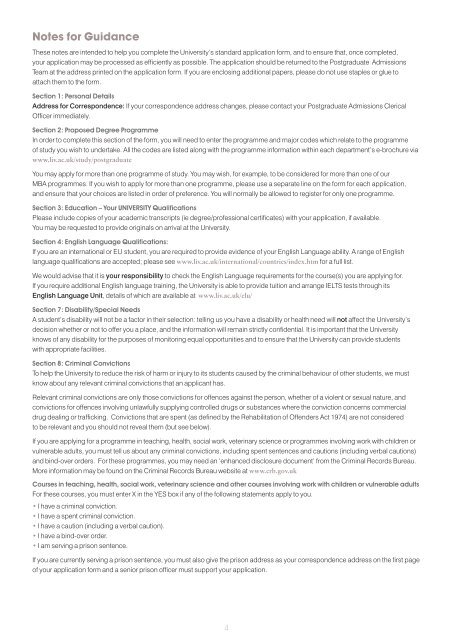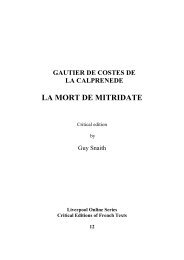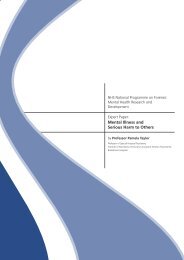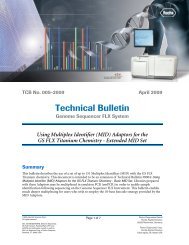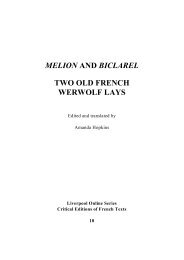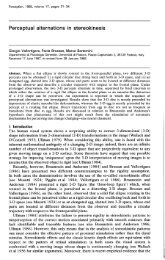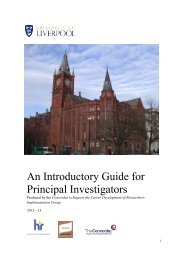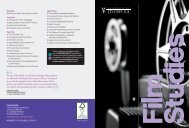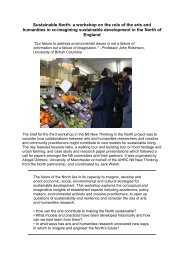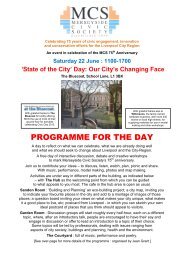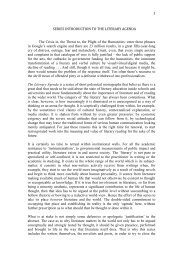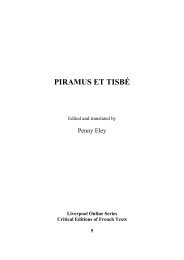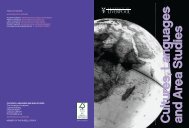Confidential Postgraduate Reference Form - University of Liverpool
Confidential Postgraduate Reference Form - University of Liverpool
Confidential Postgraduate Reference Form - University of Liverpool
You also want an ePaper? Increase the reach of your titles
YUMPU automatically turns print PDFs into web optimized ePapers that Google loves.
Notes for Guidance<br />
These notes are intended to help you complete the <strong>University</strong>’s standard application form, and to ensure that, once completed,<br />
your application may be processed as efficiently as possible. The application should be returned to the <strong>Postgraduate</strong> Admissions<br />
Team at the address printed on the application form. If you are enclosing additional papers, please do not use staples or glue to<br />
attach them to the form.<br />
Section 1: Personal Details<br />
Address for Correspondence: If your correspondence address changes, please contact your <strong>Postgraduate</strong> Admissions Clerical<br />
Officer immediately.<br />
Section 2: Proposed Degree Programme<br />
In order to complete this section <strong>of</strong> the form, you will need to enter the programme and major codes which relate to the programme<br />
<strong>of</strong> study you wish to undertake. All the codes are listed along with the programme information within each department’s e-brochure via<br />
www.liv.ac.uk/study/postgraduate<br />
You may apply for more than one programme <strong>of</strong> study. You may wish, for example, to be considered for more than one <strong>of</strong> our<br />
MBA programmes. If you wish to apply for more than one programme, please use a separate line on the form for each application,<br />
and ensure that your choices are listed in order <strong>of</strong> preference. You will normally be allowed to register for only one programme.<br />
Section 3: Education – Your UNIVERSITY Qualifications<br />
Please include copies <strong>of</strong> your academic transcripts (ie degree/pr<strong>of</strong>essional certificates) with your application, if available.<br />
You may be requested to provide originals on arrival at the <strong>University</strong>.<br />
Section 4: English Language Qualifications:<br />
If you are an international or EU student, you are required to provide evidence <strong>of</strong> your English Language ability. A range <strong>of</strong> English<br />
language qualifications are accepted; please see www.liv.ac.uk/international/countries/index.htm for a full list.<br />
We would advise that it is your responsibility to check the English Language requirements for the course(s) you are applying for.<br />
If you require additional English language training, the <strong>University</strong> is able to provide tuition and arrange IELTS tests through its<br />
English Language Unit, details <strong>of</strong> which are available at www.liv.ac.uk/elu/<br />
Section 7: Disability/Special Needs<br />
A student’s disability will not be a factor in their selection: telling us you have a disability or health need will not affect the <strong>University</strong>’s<br />
decision whether or not to <strong>of</strong>fer you a place, and the information will remain strictly confidential. It is important that the <strong>University</strong><br />
knows <strong>of</strong> any disability for the purposes <strong>of</strong> monitoring equal opportunities and to ensure that the <strong>University</strong> can provide students<br />
with appropriate facilities.<br />
Section 8: Criminal Convictions<br />
To help the <strong>University</strong> to reduce the risk <strong>of</strong> harm or injury to its students caused by the criminal behaviour <strong>of</strong> other students, we must<br />
know about any relevant criminal convictions that an applicant has.<br />
Relevant criminal convictions are only those convictions for <strong>of</strong>fences against the person, whether <strong>of</strong> a violent or sexual nature, and<br />
convictions for <strong>of</strong>fences involving unlawfully supplying controlled drugs or substances where the conviction concerns commercial<br />
drug dealing or trafficking. Convictions that are spent (as defined by the Rehabilitation <strong>of</strong> Offenders Act 1974) are not considered<br />
to be relevant and you should not reveal them (but see below).<br />
If you are applying for a programme in teaching, health, social work, veterinary science or programmes involving work with children or<br />
vulnerable adults, you must tell us about any criminal convictions, including spent sentences and cautions (including verbal cautions)<br />
and bind-over orders. For these programmes, you may need an ‘enhanced disclosure document’ from the Criminal Records Bureau.<br />
More information may be found on the Criminal Records Bureau website at www.crb.gov.uk<br />
Courses in teaching, health, social work, veterinary science and other courses involving work with children or vulnerable adults<br />
For these courses, you must enter X in the YES box if any <strong>of</strong> the following statements apply to you.<br />
• I have a criminal conviction.<br />
• I have a spent criminal conviction.<br />
• I have a caution (including a verbal caution).<br />
• I have a bind-over order.<br />
• I am serving a prison sentence.<br />
If you are currently serving a prison sentence, you must also give the prison address as your correspondence address on the first page<br />
<strong>of</strong> your application form and a senior prison <strong>of</strong>ficer must support your application.<br />
4


